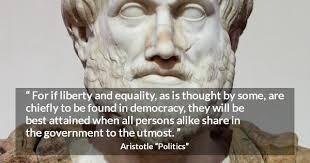Managing Power- A Religious View by Prof. Sabitu Olagoke
- By solomon2day
- On 22/06/2021
- In Special Report
 Every ruler has a ruler he reports to according to Ecclesiastes 5: 8-9,'' 8 If thou seest the oppression of the poor, and violent perverting of judgment and justice in a province, marvel not at the matter: for he that is higher than the highest regardeth; and there be higher than they.
Every ruler has a ruler he reports to according to Ecclesiastes 5: 8-9,'' 8 If thou seest the oppression of the poor, and violent perverting of judgment and justice in a province, marvel not at the matter: for he that is higher than the highest regardeth; and there be higher than they.
9Moreover the profit of the earth is for all: the king himself is served by the field.''
Poor people could be likened to civil servants, if their salary scale is compared to that of the political office holders, most especially in some nations that are underdeveloped amid the abundance of natural and human resources.
The ratio and the gap are too much between the civil servants and the political office holders creating a social class of dichotomy of kleptocracy for those who are opportune to control the resources of the land and the harsh effects of extreme poverty among the larger number of the population.Transfer Money with Wise
This situation is usually characterized by institutional indiscipline, corruption, and the emerging state of insecurity.
To correct the aberration, the relevance of the religious sector must not be undermined.
This is to promote God and godliness in the lives of the people to be able to do things the right way without having an inordinate ambition to cheat on others.

The Holy Quran 3: 23 refers, for the consciousness of all rulers and those who are aspiring to hold sensitive positions. ''O Allah! Lord of power and Rule, Thou givest power to who Thou pleasest and thou stripes of power from whom Thou pleasest, and Thou bringest low whom Thou pleasest: In Thine hand is all Good. Verily over all things Thou hast power.''
The Holy Prophet Muhammad warned that all leaders are not only accountable to the people but their creator, the almighty Allah, so also in Proverbs 22: 22-23,'' 22Rob not the poor, because he is poor: neither oppress the afflicted in the gate: 23For the LORD will plead their cause, and spoil the soul of those that spoiled them.''
The Holy Quran 6: 165 refers, '' It is He who hath made you the inheritors of the earth: He hath raised you in ranks, some others: That He may try you in the gifts (power) He hath given you: For thy Lord is quick in punishment; yet He is oft forgiven, most merciful.''
Let us use power wisely and dispense power with caution bearing in mind that we shall all be accountable not only to the society we purport to be serving but without a doubt to our creator from whom we are all from and onto whom we shall all return.
Nigeria Prof. Sabitu Olagoke Governance Government Religion
